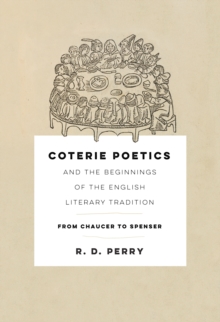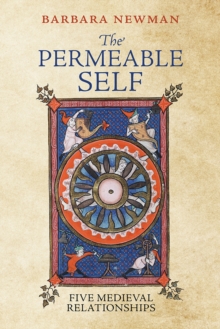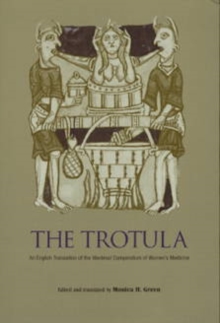
Conduct Becoming : Good Wives and Husbands in the Later Middle Ages Hardback
by Glenn D. Burger
Part of the The Middle Ages Series series
Hardback
Description
Conduct Becoming examines a new genre of late medieval writing that focuses on a wife's virtuous conduct and ability of such conduct to alter marital and social relations in the world.
Considering a range of texts written for women—the journées chrétiennes or daily guides for Christian living, secular counsel from husbands and fathers such as Le Livre du Chevalier de La Tour Landry and Le Menagier de Paris, and literary narratives such as the Griselda story—Glenn D.
Burger argues that, over the course of the long fourteenth century, the "invention" of the good wife in discourses of sacramental marriage, private devotion, and personal conduct reconfigured how female embodiment was understood. While the period inherits a strongly antifeminist tradition that views the female body as naturally wayward and sensual, late medieval conduct texts for women outline models of feminine virtue that show the good wife as an identity with positive influence in the world. Because these manuals imagine how to be a good wife as necessarily entangled with how to be a good husband, they also move their readers to consider such gendered and sexed identities in relational terms and to embrace a model of self-restraint significantly different from that of clerical celibacy.
Conduct literature addressed to the good wife thus reshapes how late medieval audiences thought about the process of becoming a good person more generally.
Burger contends that these texts develop and promulgate a view of sex and gender radically different from previous clerical or aristocratic models—one capable of providing the foundations for the modern forms of heterosexuality that begin to emerge more clearly in the fifteenth and sixteenth centuries.
Information
-
Available to Order - This title is available to order, with delivery expected within 2 weeks
- Format:Hardback
- Pages:272 pages, 4 illus.
- Publisher:University of Pennsylvania Press
- Publication Date:27/10/2017
- Category:
- ISBN:9780812249606
Information
-
Available to Order - This title is available to order, with delivery expected within 2 weeks
- Format:Hardback
- Pages:272 pages, 4 illus.
- Publisher:University of Pennsylvania Press
- Publication Date:27/10/2017
- Category:
- ISBN:9780812249606










